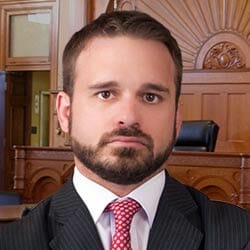November 3rd, 2015 by Attorney Dan Carman

While public awareness of child abuse has grown, so have reports of possible abuse. Every year, more than 6 million children are referred to state child protective services, with about half eventually being subject to an investigated report regarding physical abuse, sexual abuse, emotional abuse, physical neglect and emotional neglect. Of course, it is society’s duty to protect children, but the collateral damage often affects men and parents by way of unfounded and false accusations. Many of these allegations originate not from a child but from an adult bringing them on a child’s behalf. In yet other situations, further investigation reveals that reports made in good faith are not true.
Something as simple as a bruise or swelling reported by a teacher or neighbor can end in a parent’s being accused of child abuse. Once the police or the KY Cabinet for Health and Family Services has been notified, an investigation may be conducted by the Child Protective Services (CPS) workers from the county office. If the child is your own, he or she could be taken away and you could be sentenced to prison.
Last month, the Supreme Court made it even easier for prosecutors to bring child abuse cases by allowing indirect testimony of young children. The defendant was convicted of abuse after a trial in which preschool teachers testified that the 3-year-old alleged victim told them the defendant was responsible for his bruises and abrasions. The victim did not testify.
While the highest Ohio court agreed and invalidated the conviction, the Supreme Court reversed the ruling, holding that the statements did not implicate the Confrontation Clause and were admissible because they were not “testimonial.” A statement is considered “testimonial” if there is no ongoing emergency and the primary purpose of questioning is to prepare for an upcoming hearing or trial. Previously, the Supreme Court held that a “testimonial” out-of-court statement can be admitted in court only if the defendant has had the opportunity to cross examine the one who made the original statement. Interpreting the child’s out-of-court abuse disclosure as not testimonial suggests that the primary purpose of asking the child about suspected abuse was to identify and end a threat. Arguments regarding the importance of defendants’ being allowed to test evidence against them, particularly because children can provide unreliable testimony that is susceptible to suggestion from adults, were rejected.
If you have been charged with child abuse or have questions about your right to confront witnesses in court, discuss it with one of the attorneys at the Lexington, KY-based Carman Law Firm. As criminal defense attorneys with years of experience, we offer thorough, experienced representation. Call today at (859) 685-1055 or fill out this online contact form to find out how we can help you.

 Focusing on criminal matters, Mr. Carman is admitted to practice law in all Courts of the Commonwealth of Kentucky, the United States District Courts for the Eastern and Western Districts of Kentucky, and the United States Court of Appeals, Sixth Circuit. He is a member of the American, Kentucky, and Fayette County Bar Associations. Mr. Carman also worked as a prosecutor, as well as a legal assistance attorney. Attorney Dan Carman can help you with any criminal defense matters you may need including; DUI, drug, and weapons charges, trespassing, traffic violations and more. [
Focusing on criminal matters, Mr. Carman is admitted to practice law in all Courts of the Commonwealth of Kentucky, the United States District Courts for the Eastern and Western Districts of Kentucky, and the United States Court of Appeals, Sixth Circuit. He is a member of the American, Kentucky, and Fayette County Bar Associations. Mr. Carman also worked as a prosecutor, as well as a legal assistance attorney. Attorney Dan Carman can help you with any criminal defense matters you may need including; DUI, drug, and weapons charges, trespassing, traffic violations and more. [